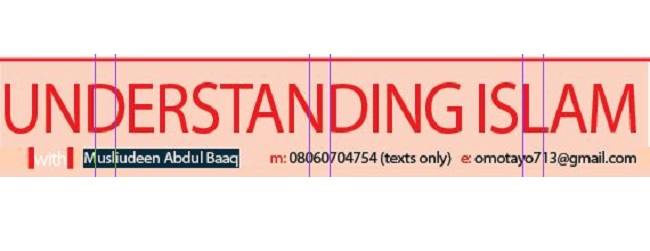IN the name of Allah, Most Gracious, Most Merciful..
Allah says: “Take (O Muhammad SAW), from their wealth a charity by which you purify them and cause them to increase.” (Surah At-Taubah, 9:103)
Other than purifying one’s wealth, zakat is a form of gratitude for Allah’s (SWT) bounty unto us. It also brings a sense of serenity when we provide for others and do our part for the socio-economic well-being of our community. Nowadays, zakat payment can even be made online.
The Prophet’s final sermon also stressed the harmful effects of usury. The message is clear: as Muslims, we should prevent any form of economic exploitation.
‘Do not discriminate’
“All humankind is from Adam A.S. and Hawa A.S. An Arab has no superiority over a non- Arab, nor does a non-Arab have superiority over an Arab; also a white has no superiority over a black, nor a black has any superiority over a white – except by piety and good action.”
A human being is judged entirely by his/her righteousness, not because of his/her race, colour or socioeconomic status. Discrimination and social injustice still exist in today’s society. We tend to judge people based on their physical attributes, looking past what their hearts can offer.
No nation is created to be above another. There is the need to embrace and learn from one another. Allah (SWT) says in the Quran: “O humankind, indeed We have created you from male and female and made you peoples and tribes that you may know one another. Indeed, the noblest of you in the sight of Allah is the most righteous of you. Indeed, Allah is Knowing and Acquainted.” (Surah Al-Hujurat, 49:13).
Let us all take a step back and instead of discriminating against others, reflect deeply on ourselves and our hearts so that we can become better people.
Islam does not promote the superiority of one’s race or lineage. One could be from a noble lineage, but it is only something to be venerated when one’s actions are also honourable. Imam Al-Haddad said: “No person of any consequence should respect or praise an ignorant man, even if he is of noble birth and virtuous ancestry, for respecting and praising such a person in his presence may harm him. It may deceive him concerning God, render him neglectful of proper behaviour and distract him from gathering provision for the Hereafter.”
Our hearts are valuable and sacred. Don’t let our eyes disregard others’ hearts while we are too focused on physical differences.
‘Hold true to the teachings of Islam’
“O people, no Prophet or Messenger will come after me and no new faith will be born. Therefore, understand the words which I convey to you. I will leave two things: the Quran and the Sunnah, and if you follow these, you will never go astray.”
Throughout his last sermon, the Prophet (SAW) reminded us of the importance of rights among humankind. Towards the end of the sermon, the Prophet (SAW) reminded us that after his departure, there would be no Messenger to guide us, but he did not leave us empty-handed. The Prophet SAW left us with two primary sources of guidance: the Quran and the Sunnah. These encompass the pillars of faith.
As Muslims, we should be mindful of our rights and duties towards Allah (SWT) such as praying daily, fasting in the month of Ramadan and paying zakat and performing hajj by those who can afford it and are physically able to do it. Being mindful of these duties is what makes us Muslims.
Prophet Muhammad (SAW) is not present with us physically to guide us in our lives but He (SAW) is with us in our hearts through the light of the Qur’an and Sunnah.
‘And if you follow this, you will never go astray’
The Prophet (SAW) gave us the responsibility to pass on the baton of his message and the word of Islam and its goodness to others. It is, therefore, our duty to ensure the timeless message of the Prophet (SAW) remains relevant to our time and locality.
“All those who listen to me shall pass on my words to others and those to others again; perhaps some of those who receive my words would understand them better than those who listened to me directly.”
Islam is a universal religion that is not confined to a particular race or nation. Hence, we must uphold the values and principles of Islam. The Prophet (SAW) ended his sermon by reading the verse from Surah Al-Ma’idah: “This day I have perfected for you your religion and completed My favour upon you and have approved for you Islam as a religion.” (Surah Al-Maidah, 5:3).
At this moment, let us examine ourselves and revive the core teachings of our Prophet (SAW) to foster an ethical and moral society wherever we are, where no one inflicts harm or injustice on others.
May the peace and blessings of Allah continue to be showered on Prophet Muhammad, his companions, his household and all those who follow in his footsteps, aamin.
Read Also: Reps seek FG intervention to tackle erosion menace nationwide



